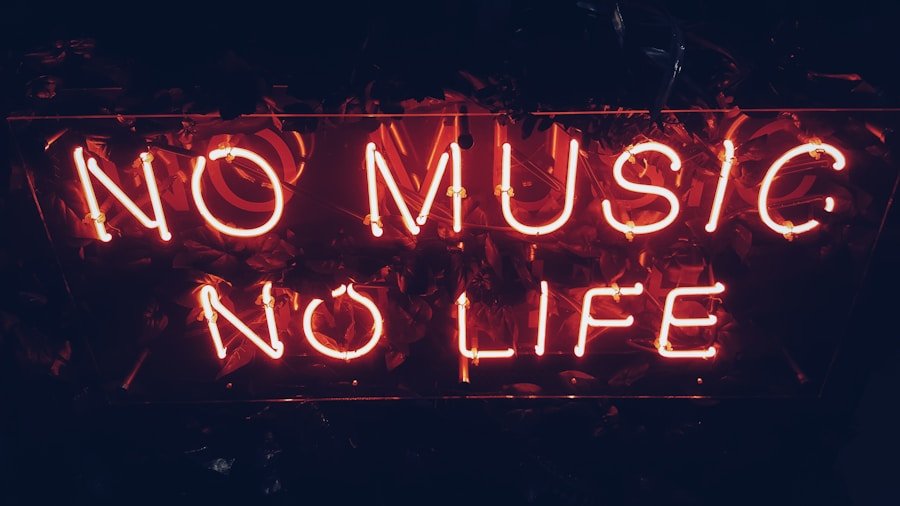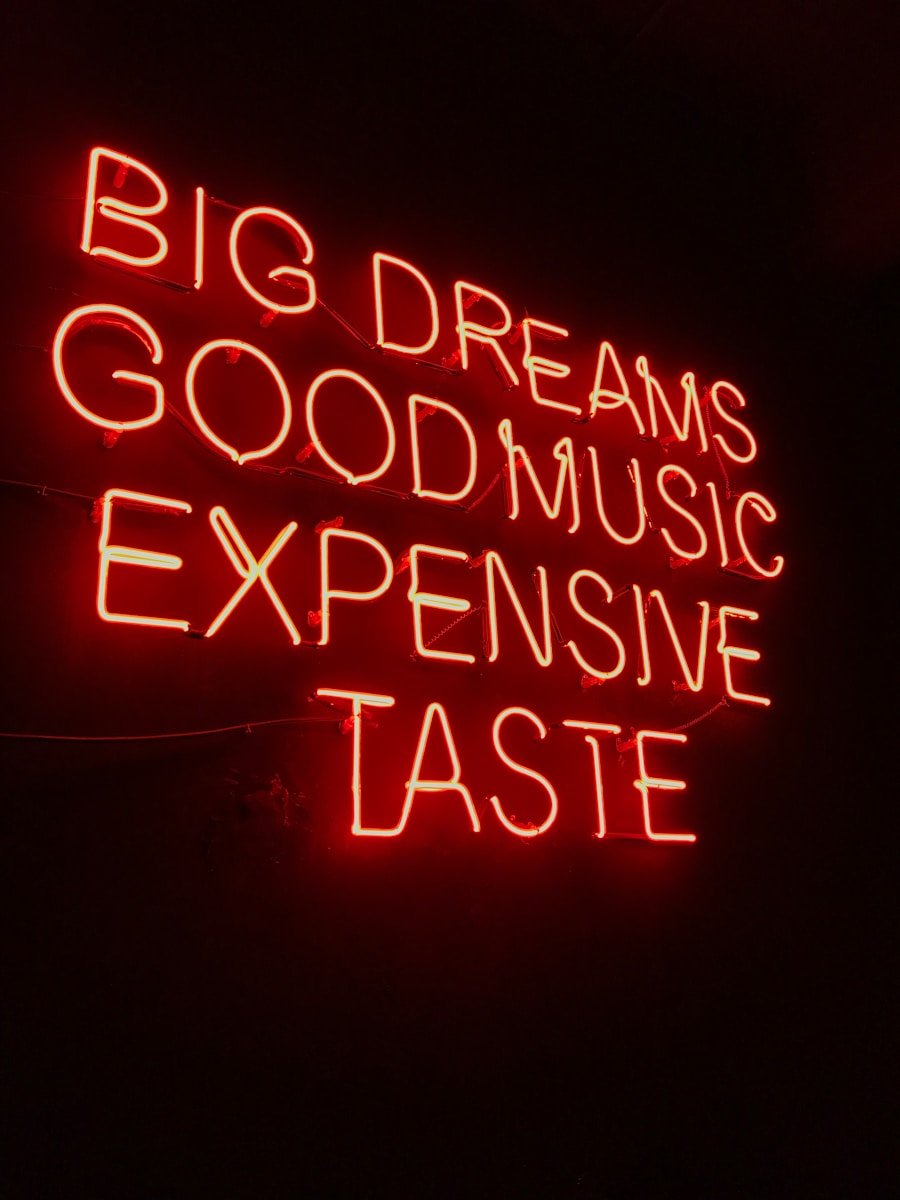As you stand on the precipice of a new era in music, the future of sound beckons with a promise of innovation and transformation. The way you experience music is evolving at an unprecedented pace, driven by technological advancements that reshape not only how music is created but also how it is consumed and shared. This evolution is not merely a trend; it represents a fundamental shift in the very fabric of the music industry.
You are witnessing a convergence of creativity and technology that opens up new avenues for artists and listeners alike, creating a vibrant landscape where sound knows no boundaries. In this brave new world, the possibilities are endless. Imagine a time when your favorite songs are not just played but experienced in immersive environments, where artificial intelligence collaborates with musicians to craft unique compositions tailored to your tastes.
As you delve deeper into this exploration of sound, you will discover how these advancements are not just enhancing your listening experience but also redefining the relationship between artists and their audiences. The future of sound is not just about what you hear; it’s about how you feel, connect, and engage with music on a profound level.
Key Takeaways
- The future of sound is being shaped by advancements in technology, artificial intelligence, and virtual reality.
- Technology has significantly impacted the music industry, from production to distribution and consumption.
- Streaming services have revolutionized music consumption, leading to changes in how music is discovered and enjoyed.
- Artificial intelligence is playing a crucial role in music creation and curation, offering new possibilities for artists and listeners.
- Virtual reality and augmented reality are transforming the music experience, offering immersive and interactive opportunities for both artists and fans.
The Impact of Technology on the Music Industry
Democratization of Music Production
The days of exclusive recording studios are behind us. Today, anyone with a computer and software can create high-quality music from the comfort of their own home. This democratization of music production empowers creators, allowing them to express their artistic vision without the constraints of traditional gatekeepers.
Revolutionized Distribution Channels
Technology has also transformed distribution channels. With just a few clicks, artists can share their music with a global audience through platforms like Spotify, Apple Music, and SoundCloud. This accessibility broadens an artist’s reach and enriches the listener’s experience.
A More Inclusive Musical Community
The barriers that once separated musicians from their audiences are crumbling, fostering a more inclusive and interconnected musical community. With the world’s music at their fingertips, listeners can explore diverse genres and discover emerging artists from different cultures.
The Rise of Streaming Services and Its Effect on Music Consumption

Streaming services have fundamentally altered how you consume music, shifting the paradigm from ownership to access. Instead of purchasing individual albums or tracks, you now subscribe to platforms that offer vast libraries of songs at your convenience. This shift has made it easier than ever for you to explore new artists and genres without the financial commitment of buying physical copies or downloads.
You can curate your playlists, discover new favorites, and even share your musical tastes with friends—all with a few taps on your device. However, this convenience comes with its own set of challenges. While streaming services provide an abundance of choices, they also raise questions about artist compensation and the sustainability of the music industry.
As you enjoy the ease of access to millions of songs, it’s essential to consider how this model affects the creators behind the music you love. Many artists struggle to earn a living wage from streaming royalties alone, prompting discussions about fair compensation and the need for new business models that support musicians in this digital age.
The Role of Artificial Intelligence in Music Creation and Curation
| Metrics | Statistics |
|---|---|
| Number of AI-generated songs on Spotify | Over 40,000 songs |
| Percentage of music industry professionals using AI for curation | 67% |
| Amount of time saved by music curators using AI | Up to 30 hours per week |
| Percentage increase in music consumption due to AI-generated playlists | up to 32% |
Artificial intelligence is making waves in the music industry, transforming both creation and curation processes in ways that were once unimaginable. As you explore this realm, you’ll find AI tools that assist musicians in composing melodies, generating lyrics, and even producing entire tracks. These technologies can analyze vast amounts of data to identify trends and patterns, helping artists create music that resonates with listeners on a deeper level.
Imagine collaborating with an AI that understands your style and preferences, offering suggestions that enhance your creative process. On the curation side, AI algorithms are revolutionizing how you discover music. Streaming platforms utilize sophisticated algorithms to analyze your listening habits and recommend songs tailored to your tastes.
This personalized approach not only enhances your experience but also introduces you to artists and genres you might not have encountered otherwise. As AI continues to evolve, it will play an increasingly significant role in shaping your musical journey, making it more dynamic and engaging than ever before.
Virtual Reality and Augmented Reality in the Music Experience
The integration of virtual reality (VR) and augmented reality (AR) into the music experience is pushing boundaries and creating immersive environments that redefine how you engage with sound. Imagine attending a concert where you can step into a virtual venue, surrounded by stunning visuals that enhance the performance. With VR headsets, you can experience live shows from the comfort of your home while feeling as if you’re right there in the front row.
This technology not only expands access to live performances but also allows for unique experiences that traditional concerts cannot replicate. AR takes this immersion a step further by overlaying digital elements onto your real-world environment. Picture yourself at a festival where AR enhances your surroundings with interactive visuals or provides real-time information about the artists performing on stage.
These technologies create a multi-sensory experience that deepens your connection to music, allowing you to engage with it in ways that were previously unimaginable. As VR and AR continue to develop, they will undoubtedly play a pivotal role in shaping the future of live music experiences.
The Importance of High-Resolution Audio and its Potential in the Industry

The Art of Sound: Elevating the Listening Experience
The rise of high-resolution audio formats is not just about better sound; it’s about fostering a deeper appreciation for the artistry behind each track. As consumers become more aware of its benefits, there is an opportunity for artists to release their work in formats that showcase their talent more effectively.
A New Era for Physical Media
This shift could lead to a resurgence in physical media sales, such as vinyl records or high-quality digital downloads, as listeners seek out superior sound quality. By embracing high-resolution audio, both artists and listeners can cultivate a richer musical landscape that honors the craft of music-making.
A Richer Musical Landscape
Ultimately, the potential for high-resolution audio in the industry is immense. By embracing this technology, we can enhance our enjoyment of music while honoring the artistry and craftsmanship that goes into creating it.
The Influence of Social Media and User-Generated Content on Music Discovery
Social media has become an integral part of how you discover new music today. Platforms like TikTok, Instagram, and YouTube allow users to share their favorite songs and create content that resonates with their followers. This user-generated content has transformed how music goes viral; a catchy snippet can lead to millions of streams overnight as users engage with it through dance challenges or creative videos.
You are part of this dynamic ecosystem where your engagement can propel an unknown artist into the spotlight. This phenomenon has also changed how artists promote their work. Musicians now leverage social media to connect directly with their fans, sharing behind-the-scenes glimpses into their creative processes or engaging in conversations about their music.
This direct interaction fosters a sense of community and loyalty among listeners, making you feel more connected to the artists you love. As social media continues to evolve, its influence on music discovery will only grow stronger, shaping trends and propelling new sounds into mainstream consciousness.
The Future of Live Music and Concert Experiences
The future of live music is poised for transformation as technology continues to reshape how you experience concerts and festivals. While traditional live performances will always hold a special place in your heart, innovations such as hybrid events—combining in-person attendance with virtual participation—are becoming increasingly popular. This model allows fans who cannot attend physically to engage with performances in real-time from anywhere in the world, expanding access to live music like never before.
Moreover, advancements in sound technology promise to enhance live performances further. Imagine attending a concert where spatial audio creates an immersive soundscape that envelops you completely. Artists will have more tools at their disposal to create unforgettable experiences that resonate deeply with audiences.
As you look ahead to the future of live music, it’s clear that these innovations will not only redefine what it means to attend a concert but also deepen your connection to the artists and their craft. In conclusion, as you navigate this exciting landscape shaped by technology and creativity, remember that the future of sound is yours to explore. Embrace these changes as they unfold, knowing that they offer new opportunities for connection, discovery, and enjoyment in your musical journey.
Whether through streaming services, AI collaborations, or immersive experiences, the evolution of sound promises to enrich your life in ways you may have never imagined possible.
